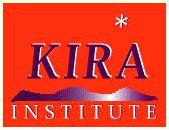
 |
Yamaneko Project History |
At the end of this period, in late October 2003, the five of us met in Princeton, and we decided to extend our project for another six months. We also felt that more viewpoints would be welcome, so four people were invited to join our group, of whom two are with us today, Veronique Foti and Jeff Thompson. We also felt that our group needed more structure than we had imposed on ourselves so far and so we decided to read Time, Space and Knowledge (henceforth TSK) by Tarthang Tulku, a Tibetan Teacher based in Berkeley. The views expressed in TSK were closest to our own vision of a non-dogmatic approach to existential questions. Our goal was to read a chapter of TSK every week. We also created a structured format where each person would write a lab report according to our guidelines and then one person would summarize that week's output to the rest of the group.
The discussion of the exercises in TSK provoked many interesting questions, some philosophical, some scientific and others more metaphysical. TSK's vision questions all of the normal assumptions that we make about reality, and in its radical version, it challenges the reality of everything we take for granted, even something as seemingly solid as a rock. After all, a rock is a rock, right? If you kick it, you get hurt, what could be more certain than that? While one can, at an intellectual level, agree that the rock is "empty", to use a Buddhist phrase, how can we see the emptiness of the rock directly? Such questions kept us busy for another six months. We did not arrive at a consensus, but it was clear that the questions were getting more and more interesting. On the flip side, the lab report format we had developed turned out to be too constrictive at this stage of our exploration and it was discontinued.
After reading TSK, we met again in Princeton in April 2004. At that time we felt that the group had a better grasp of the core problems, but more work was needed before we could see the issues concretely. There was still the question of a universal methodology that was clearly science-like in its structure. At that time Piet said that he would be happy to take a shot at delineating a science-like method and that he would write a book if the rest of us were willing to read it. We agreed to read it and comment on it for the next six months and also invited another person to join us: Edita Zlatic.
During the summer and early fall of 2004, we read Piet's book chapter by chapter, giving him feedback, while reflecting upon how to conduct an open-ended inquiry into reality. In his book Piet started with science as we know it now (which is driven by the science of matter) and ended with what science might look like after many centuries. His book (available here) illustrates our ongoing effort to develop a science-like approach to fundamental existential questions.
When we met in Princeton in early November 2004, we agreed that our collective understanding had reached a stage that was communicable to others. The website that you are looking at now is the consensus view as we see it at this moment in time. We hope that the combined effort of people asking questions worldwide in a transparent and open format will help us accelerate the process of discovering the principles underlying reality as such. Perhaps this is too ambitious a goal, but we are sure that it will be a great journey. We look forward to sharing our adventure with you.
![]()
Back to main page.